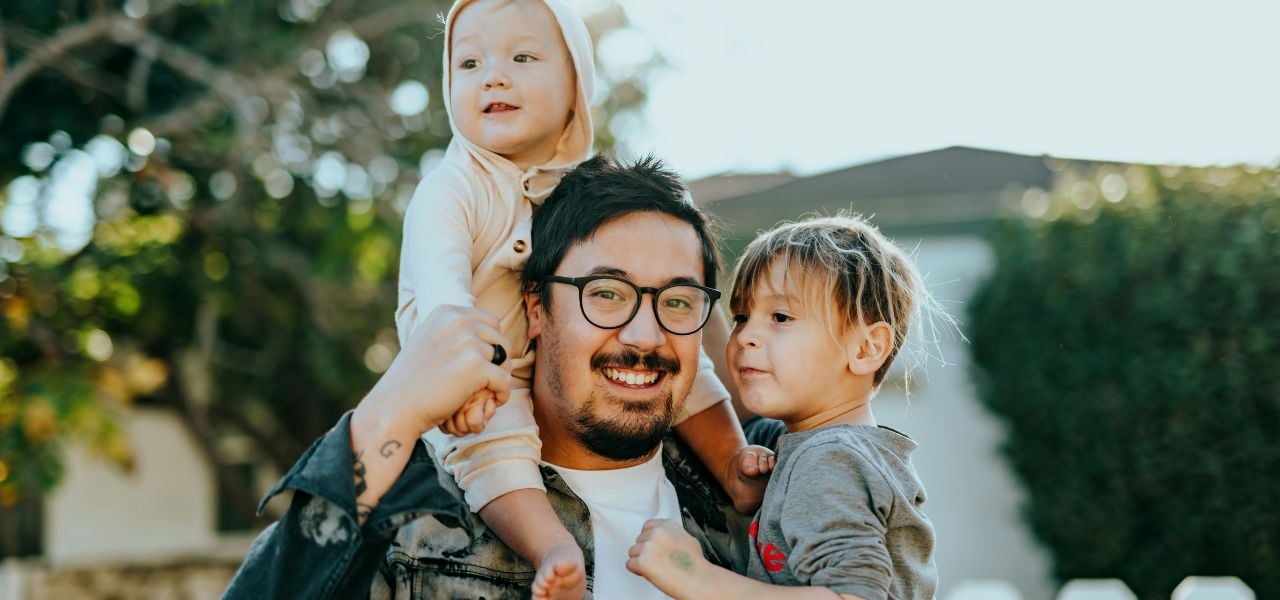Do you feel like your drinking may have gotten out of control? Have you been thinking that it might be time to quit drinking? Maybe you’re tired of feeling hungover. Perhaps you want to have more energy. Or maybe your loved ones are worried about you and you’re ready to choose a new path in life.
Whatever your motivation, there’s hope and help available if you’re struggling with an alcohol use disorder. Understanding how to quit drinking alcohol is the first step on your journey. Here are 14 helpful tips from EHN Canada that can help you quit or at least curb alcohol misuse as a first step. You will also find some FAQs about quitting drinking that can help on journey as well.
1. Avoid temptation
Recognize and avoid situations where you’re tempted to drink. This means planning ahead for social events, vacations, and other circumstances where you’re used to drinking. Stay away from places and people who encourage you to drink more than you should. Keep an eye out for emotional triggers that make you want to drink, such as anger, stress, or loneliness. Once you identify these triggers, come up with alternative ways to cope with these feelings that don’t involve alcohol. For example, you might try going for a walk when stressed, calling a friend when lonely, or practicing deep breathing when angry.
2. Let others know you’re quitting
Sharing your decision to quit drinking can make your journey easier and more successful. Be open about your intentions with friends and family. Most people in your life will likely offer support and encouragement, which can be a big boost when you’re facing challenges. By talking about your decision, you might also discover friends who are considering quitting or who have already done so. These connections can be invaluable, providing you with understanding ears, practical advice, and motivation. Don’t be afraid to lean on your support network when you need it.
3. Choose a go-to non-alcoholic drink
When it comes to alcohol dependence, establishing good habits is the key to make any big change in your life. Try choosing a non-alcoholic drink that becomes your regular order. You might try sparkling water with lime, or spices in a hot drink such as tea or hot chocolate. If you have a standard drink for any circumstance, you’ll be less tempted to order that glass of wine.
4. Rediscover your hobbies or take up new ones.
Drinking (and recovering from a night of heavy drinking) can take up a lot of your free time. When you quit drinking, you may be surprised to find out how much more time you have suddenly. Now’s the time to take up a new hobby or to dive back in to something you miss. Maybe redesign your garden, catch up on your reading, work your way through a new video game, or volunteer for a cause that’s important to you. Plus, when you’re not bored, you have less incentive to drink.
As you explore new activities or rediscover old passions, you might also find that your energy levels and focus improve. This can lead to a positive cycle where your newfound interests not only fill the time you used to spend drinking but also contribute to your overall well-being. You might discover hidden talents, meet like-minded people, or simply enjoy the satisfaction of personal growth.
5. Delay drinking
If you’re trying to reduce the amount of alcohol you drink or to cut back gradually, one great tip is to push back the hour at which you have a drink. If you start to drink early in the day, you’re likely to keep drinking. If you decide that your first drink will be after dinner or once you’re done at the gym after work, you’re less likely to drink too much.
Another benefit of delaying your first drink is that it can help you build better habits over time. You might find that as you consistently push back your drinking time, you naturally start to drink less overall. This gradual approach can make the process of cutting back feel more manageable and less overwhelming.
6. Practice what you’ll say
When you quit drinking, people may want to know what’s going on — and some less helpful friends may urge you to drink even when you’ve said no. Having a few go-to phrases on hand to respond with in your social life can be useful. Try saying, “I’m cutting back for my health” or “I’m pacing myself” or “I feel better when I’m not drinking.” The more you use these phrases, the more you’ll reinforce your new, healthier habits.
In addition to these phrases, it can be helpful to prepare for more persistent questioning. You might consider responses like, “I appreciate your concern, but I’m comfortable with my choice” or “I’m exploring new ways to socialize without alcohol.” Remember, it’s okay to be firm in your decision. If someone continues to pressure you, it’s perfectly acceptable to change the subject or even step away from the conversation. Some people find it useful to have a trusted friend at social events who knows about their decision to quit drinking and can offer support or intervention if needed. The key is to feel confident in your choice and remember that you’re making a positive change for yourself.
7. Understand what to expect during withdrawal
If you’ve been drinking heavily on a regular basis, your body may have to detox when you quit drinking. You may experience irritability, anxiety, headaches, and sweating. All these symptoms are normal, and they should pass within about a week. Let your doctor know you’re going to be quitting drinking, and have a friend around to help you through the experience. If you experience any hallucinations or high blood pressure, call your doctor. See the FAQs below for more on this topic.
It’s important to remember that withdrawal symptoms can vary from person to person, and the severity often depends on factors like how long you’ve been drinking and how much you typically consume. Some people may experience milder symptoms, while others might face more challenging ones. During this time, it’s crucial to stay hydrated, eat nutritious meals, and get plenty of rest. Gentle exercise, like short walks, can also help manage symptoms and improve your mood. If you’re concerned about managing withdrawal on your own, consider seeking professional help. Many treatment centres offer medically supervised detox programs that can make the process safer and more comfortable. Remember, asking for help is a sign of strength, not weakness.
8. Set realistic goals
If you know you can’t quit drinking completely, then don’t make that you’re goal. If you plan to cut back on your drinking, set your goals ahead of time. Determine how many days you want to drink per week and how many drinks per day, and then cut those numbers down each week. Write your goals down to have stronger motivation to keep them.
As you work towards your goals, it’s important to track your progress and celebrate your successes, no matter how small they may seem. Consider using a mobile app or a simple journal to log your drinking habits and note the days you successfully stick to your plan. This can help you visualize your progress and identify any patterns or triggers. Remember, setbacks are a normal part of the process and don’t mean failure. If you slip up, treat it as a learning experience and get back on track. You might also find it helpful to reward yourself for reaching milestones – perhaps with a favorite non-alcoholic treat or an activity you enjoy.
9. Measure and count your drinks
If you count your drinks as you’re trying to reduce your intake, you’ll be better able to stick to your plan. Slip a note into your wallet to keep track, or record your drinks on your phone. Don’t give yourself wiggle room by ordering doubles. Knowing what you’re really drinking will help you meet your goals.
10. Get rid of the alcohol in your home
If you don’t have alcohol just waiting for you, you’re less likely to experience alcohol cravings — and that could cut down on your intake significantly. If you have roommates or family at home, ask them to work with you on this for at least a month. Then pour it all down the drain or give your alcohol away to friends.
11. Stock up on your non-alcoholic favorites
If you’re used to drinking at home, you don’t need to deprive yourself of having something cool and delicious in your hand. Stock up on interesting soft drinks, flavoured waters, juices and (soft) ciders so you always have something you like around when you’re thirsty. You might even want to try non-alcoholic wines and beers, if they don’t tempt you to go back to the real thing.
12. Plan alcohol-free days
One easy way to cut back on your drinking is to pick several days a week when you simply don’t drink. You can start with a couple of days, then add more a little at a time. Experiment with abstaining completely for a weekend or a week and see how you feel.
13. Keep a journal
Journalling can be a great way to track progress and work through your success. Even if you just jot down quick notes on your phone, keep track of all the good things that happen because you’re quitting drinking. Note down when you have more money in your pocket, when you have a great drink-free social outing, when you wake up feeling good, when your friends compliment your abstinence, and when you realize you’re losing weight. That list of notes will be a great encouragement going forward.
14. Seek support or treatment.
You’ll have an easier time quitting alcohol if you don’t try to do it on your own. That might mean joining a local Alcoholics Anonymous group, seeking out a therapist, or asking your doctor for a referral to alcohol rehab. EHN Canada offers the country’s best evidence-based approach to addiction recovery.
FAQs When You Decide to Quit Drinking
What happens to your body when you quit drinking?
If you’ve been drinking heavily, you may at first experience some withdrawal symptoms, including nausea, vomiting, shakiness and sweating. Soon, though, you’ll find yourself feeling healthier, sleeping better, and enjoying a clearer mind. Your heart and liver will start to heal, your blood pressure may drop, you may lose weight, and your sex life may improve.
How does quitting drinking affect weight loss?
Heavy drinkers and those who are overweight typically experience weight loss when they stop drinking. The weight loss effects for moderate drinkers are less pronounced.
Does quitting drinking ever get easier?
The first 2 to 4 weeks are the toughest for most people who quit drinking. After that, as your body recovers and heals, you’ll feel better continually and gradually. For many people, the 1-year mark is when they realize they have no cravings for alcohol.
Why should you quit drinking alcohol?
The answer to this one can be different for everyone. A reliance on alcohol can damage your body and your appearance. It can place in danger your own life and the lives of others. It can also damage your relationships. Quitting alcohol removes the cause of all this potential damage to your and your world.
Does your liver heal when you quit drinking?
Usually, yes. Your liver can begin to heal with a few weeks of your quitting drinking. Full healing can take months in the case of significant liver damage. For heavy drinkers with years of alcohol abuse in their past, in some cases, long-term liver damage is not reversible.
How long does depression last after quitting drinking?
Most people find their mood improves after 3 to 6 weeks of quitting drinking. If you don’t find an improvement in mood, see your doctor to explore whether you have an underlying mental health condition that needs treatment.
Is it possible to quit drinking on your own?
While for some people, yes, it is possible to quit drinking alone, but it’s very difficult to do. Even cutting back on alcohol use without support is hard to do, as alcohol is an addictive, habit-forming substance. You’ll find it easier to quit if you enlist help from a support group or a treatment program.
How can you sleep when you quit drinking?
Insomnia is one of the withdrawal symptoms you may experience when you quit drinking. By following a sleep schedule, practicing healthy sleep hygiene, and sticking to a bedtime routine, you should be able to move past insomnia. Other practices that can help reduce insomnia are meditation, progressive muscle relaxation, yoga, massage, aromatherapy, and biofeedback exercises.
How long does anxiety last after quitting drinking?
Anxiety is common immediately after you quit drinking. Expect your mood to improve within 3 to 6 weeks. If it doesn’t, see a doctor to check for any co-occurring mental health conditions.
How can I quit drinking when everyone around me drinks?
Be honest with your friends about your intention to quit drinking, and start your evening prepared by having a non-alcoholic drink already in your hand. Planning your responses for when people ask why you’re not drinking is helpful, and you may also want to have an exit strategy planned if the evening starts to get out of hand. Look for fun activities that don’t involve alcohol as well.
How can I quit drinking without stress?
If you’ve been coping with stress by drinking, you’ll have to find new ways to handle the stress that naturally comes with everyday life. Start exploring ways to destress before your quitting date. You might try reading a great book, taking a walk, pampering yourself with a long bath, or practicing yoga. In addition, learning calming methods of breathing can go a long way to helping you keep stress at bay.
What if I quit drinking alcohol, but I feel lost without it?
You can expect to feel all sorts of emotions when you first quit drinking alcohol. After all, you’re setting aside a habit (and potentially an addiction) that has been a big part of life, and you will feel a sense of loss. If, however, you still feel lost after a month or so, you should reach out for treatment options or a support group, if you haven’t already. Starting a support group or treatment as early as possible is one of the best things you can do in your quest to quit drinking.




